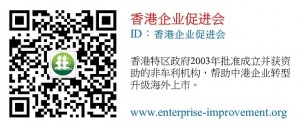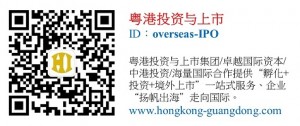The PCAOB on Tuesday proposed sweeping changes to the auditor’s reporting model for U.S. public companies that would include a requirement for auditors to identify and describe “critical audit matters.”
In addition, new standards and related amendments proposed by the PCAOB would require:
- A statement of auditor independence. This would explain that the auditor is a public accounting firm registered with the PCAOB and is required to be independent with respect to the company.
- Tenure disclosure. The audit firm would disclose the year it began serving as a company’s auditor.
- Other information explanation. The auditor would be required to describe the procedures and evaluation the firm performed on other types of information included in the annual report outside the financial statements.
- Language enhancements. These would change existing language in the auditor’s report related to the auditor’s responsibilities for fraud and notes to the financial statements.
The board unanimously approved exposing the proposal for public comment, although board member Steve Harris expressed disappointment that the proposal would not provide as much useful information for investors as he had hoped. Stakeholders can comment on the proposal by Dec. 11 at the PCAOB’s website.
PCAOB Chairman James Doty said the proposal marks “a watershed moment” for auditing in the United States.
“The proposed standards … would make the audit report more relevant to investors by establishing criteria and a framework providing deeper insights from the audit, based on information the auditor already knows from the audit,” Doty said during an open meeting Tuesday.
What are “critical audit matters”?
The proposal is designed to change how auditors report without significantly changing the procedures auditors perform.
A key component of the proposal would be the requirement to identify and report on critical audit matters, which are defined as matters addressed during the audit that:
- Involved the most difficult, subjective, or complex auditor judgments;
- Posed the most difficulty to the auditor in obtaining sufficient appropriate evidence; or
- Posed the most difficulty to the auditor in forming an opinion on the financial statements.
When critical audit matters are determined, auditors would be required in their report to:
- Identify the critical audit matter.
- Describe the considerations or reasons that the matter was identified as critical.
- Refer to the relevant financial statement accounts and disclosures that relate to the critical audit matter, when applicable.
The communication is not intended to alter the auditor’s opinion on the financial statements as a whole. If the auditor determines there are no critical audit matters to communicate, the auditor would state that conclusion in the auditor’s report.
The proposed auditor reporting standard, The Auditor’s Report on an Audit of Financial Statements When the Auditor Expresses an Unqualified Opinion, would supersede portions of AU Sec. 508, Reports on Audited Financial Statements.
Evaluating “other information”
The proposed “other information” standard describes new procedures the auditor would be required to perform. The auditor would be required to evaluate information that is included in an annual report filed in Form 10-K, but is outside the audited financial statements. Selected financial data and management’s discussion and analysis would be among the items the auditor would be required to evaluate.
In addition, the proposed standard describes procedures the auditor is required to perform after identifying a material inconsistency or material misstatement between the other information and the audited financial statements.
When issuing the auditor’s report, the auditor would include, in a separate section, specific statements regarding the auditor’s responsibilities for the other information. Regardless of whether an inconsistency or misstatement of fact is discovered, the auditor would report the results of that evaluation, PCAOB Associate Chief Auditor Jessica Watts said during Tuesday’s meeting.
The proposed other information standard, The Auditor’s Responsibilities Regarding Other Information in Certain Documents Containing Audited Financial Statements and the Related Auditor’s Report, would supersede current AU Sec. 550, Other Information in Documents Containing Audited Financial Statements.
Although AU Sec. 550 requires auditors to read and consider other information, the new standard proposes an incremental change because it would require auditors to read, evaluate, and perform specific procedures, PCAOB Chief Auditor Martin Baumann said during the open meeting.
Few changes in 70 years
Audit reports in the United States have not undergone significant revision since the 1940s, Baumann said. Investors have expressed interest in a report that does more than give a pass/fail opinion from the auditor on whether the financial statements are presented fairly, Baumann said.
The PCAOB has conducted extensive outreach in developing a proposal that will have a significant impact.
“I believe we are substantially improving the auditor’s report in ways that will make it much more relevant and useful for investors and other users of the financial statements,” Baumann said.
The proposal is similar to an auditor’s reporting model proposal exposed for public comment last month by the International Auditing and Assurance Standards Board, PCAOB member Jay Hanson said, although the PCAOB arrived at its conclusions independently.
Hanson said the board has devoted enormous resources to the project in hopes of giving investors more information than the current pass/fail model provides.
“It’s not something taken on lightly when the pass/fail model has been successful in the past,” Hanson said in a telephone interview. “Nobody is saying, ‘Get rid of the pass/fail model.’ It’s just, what more can we learn from the auditors about the audit that might be helpful to investors?”
Center for Audit Quality (CAQ) Executive Director Cindy Fornelli expressed support for responsible change to the auditor’s report. Fornelli said in a statement that she is encouraged that the PCAOB acknowledged concerns with an auditor’s “discussion and analysis” approach that had been considered.
The CAQ, which is affiliated with the AICPA, believes management, not auditors, should be the original source of information about an entity, Fornelli said. She also commented on the proposed auditor tenure requirement.
“As noted by several board members at today’s open meeting, there is no demonstrated correlation between auditor tenure and audit quality,” Fornelli said.
—Ken Tysiac is a Journal of Accountancy senior editor.
*香港企業促進會是幫助中港企業轉型升級與國際接軌(境外上市)的平臺;除了邀请名家大师参加每年一度的專業管理研討會(PMDP: Professional Management Development Program)外,香港企業促進會特开设《企管名師专栏》定期和不定期地发表企管名师在管理学的前沿研究和经验总结,并摘录部分国际权威机构(如AICPA等)有关企业管治,内控,会计准则,上市,与资本市场接轨,转型升级等最新动态和企業管理的经验和研究报告供会员参考和借鉴。以便提高业界的专业管理水平,更好地落实香港企業促進會“提升企业竞争力 • 促进升级齐增值”的宗旨。









